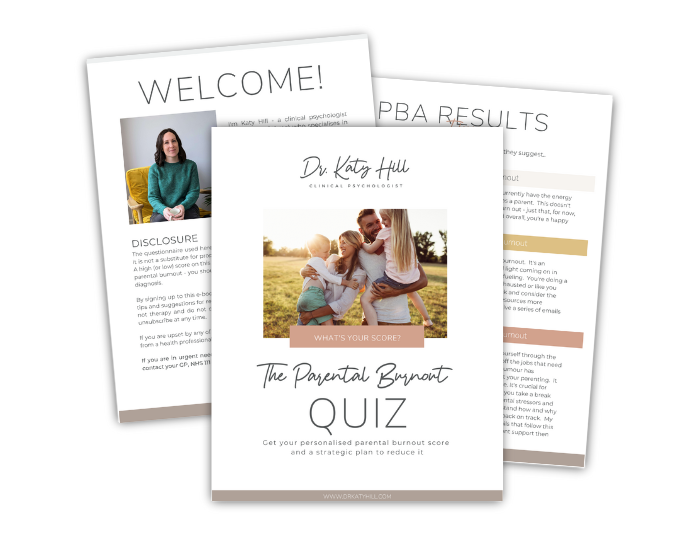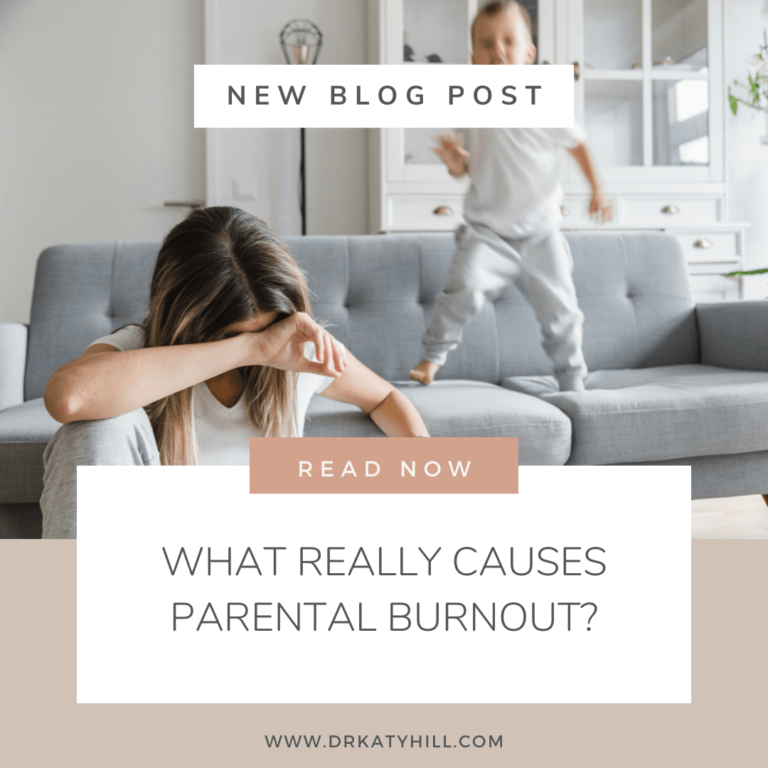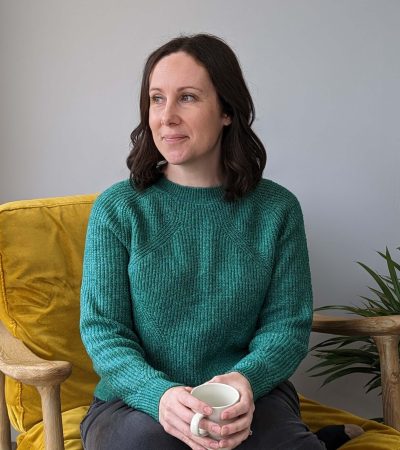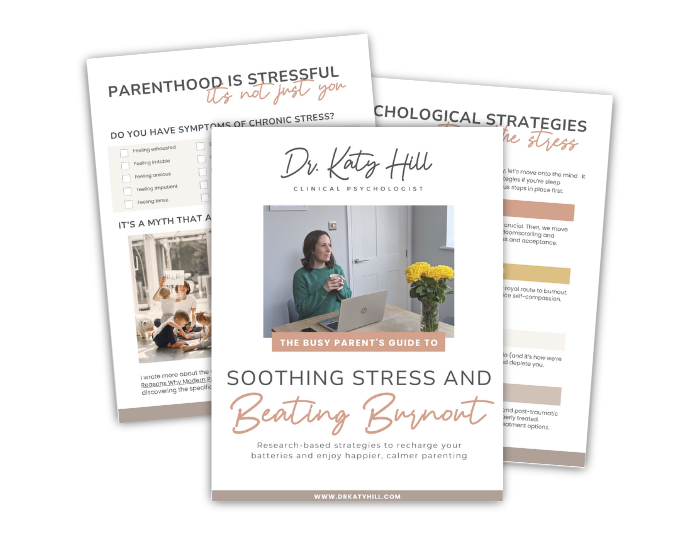What really causes parental burnout? Will it happen to you because you’re a single parent? Or because you have a child with a complex medical condition? Or does it only happen to parents with mental health problems?
It’s really important to understand what causes parental burnout so that we can effectively reverse those causes and revitalise frazzled parents.
Perhaps more importantly, if we know what causes parental burnout then we can prevent it in the first place. A much better option.
I’ve written this blog to help you understand what causes parental burnout and then you can apply that knowledge to your own life – so that you can buffer yourself against the effects of stress and not fall into parental burnout.
Of course, it might be a bit late for that if you’re already feeling burned out. You might feel far too exhausted to read blogs or figure things out on your own and in that case, drop me an email and let’s have a chat about how we could work together.
PARENTHOOD IS BOTH JOY AND STRESS
There’s nothing quite so wonderful and awful as being a parent.
All of us parents deal with daily hassles like feeding, washing, dressing our children and transporting them to school, play dates, medical appointments etc. We have a lot to remember, a lot of mundane jobs to do and that’s just the good days.
On the bad days, our children are upset, unwell, struggling with school or friendships and need us to calm and care for them. And all while we’re juggling our own problems and trying to maintain our own career, social life, health, hobbies etc.
It’s a lot.
So why would any of us put ourselves through this? Well, honestly, we didn’t know it would be like this. None of us really understand what it’s like until we become parents. Life also throws us curveballs like a multiple birth, a diagnosis or a divorce. Few expectant parents really expect or plan for those things; we’re mostly eyeing the fulfilment we believe parenthood will bring us.
And don’t get me wrong, parenthood is very fulfilling. Even if you’re really struggling as a parent right now, I bet you can call to mind some really sweet memories from your parenting journey. Perhaps the pleasure of holding their pudgy little toddler hands, how funny your preschooler is when they mispronounce words, how proud you felt watching your child overcoming difficulties at school or how much fun it can be to chat and joke with your teenager now they’re more worldly-wise.
There’s not much else that can bring us such highs of love, pride, joy and fun than bringing up children.
MosTLy The Joy Of PARENTHOOD OUTWEIGHs THE STRESS
For most of us, most of the time, the joys of parenting outweigh the stressors.
We put up with all the stress of planning expensive family holidays because the feelings of anticipation, joy, relaxation and togetherness we get make them worthwhile. It’s worth the stress of ferrying your child to sports games, standing in the rain watching them, washing their muddy kit afterwards. The stress is outweighed by seeing the joy it brings them and we feel such pride and pleasure watching them developing their skills, playing with their friends and being off screens for a few hours.
But sometimes, the balance tips the other way. The stressors we’re facing aren’t compensated by the joy and pleasure of parenting.
We all have bad patches like this. We struggle through the toddler tantrums, or the multiple hospital admissions or our teenager’s stressful exam season. Most bad patches lift in good time. But, if they don’t, if the stressors outweighs the joys for too long, our parenting stress becomes dominant and chronic. The joy fades from view.
Parenting has become a chore, a never-ending to do list, an exhausting, joyless, grind. Parental burnout has set in.

The Parental Burnout Quiz
Curious what your own parental burnout score is? Download the free assessment and get your score – plus expert tips on how to reduce it.
PARENTAL BURNOUT IS ALL ABOUT BALANCE
Burnout at work has been studied since the 1970s and researchers in that field have always known that it results from workers having too many stressors and not enough resources to deal with those stressors.
We know that increasing stress at work can be manageable as long as you’re also given increased resources to manage that stress.
For example, a nurse who’s asked to take on twice as many patients due to a merging of two hospital wards will clearly feel increased stress. But, if that stress is compensated by an increase in resources such as the nurse also being given extra healthcare support workers, more breaks, extra payment or an extra day off then it’s likely that the extra stress will be manageable.
It’s the same with parents – having a second baby will naturally increase your stress levels but if these are offset with arranging for more childcare for your firstborn, your partner taking leave from work, your best friends visiting every day and bringing meals for you then you probably won’t burn out.
It’s not about what happens to you; but the resources that you have available to deal with it.
5 categories of parental stressors and resources
The world’s leading parental burnout researchers, Profs Isabelle Roskam and Moira Mikolajczak have identified five categories of parental stressors and resources:
1. Sociodemographic factors: factors such as your gender, income level, educational level, work status, how many children you have, how many people there are in your family, how large your house is, how much space everyone has for themselves etc.
2. Situational factors: factors like whether your child is struggling in school, or with a health condition or neurodiversity. Or whether you’re struggling with health, psychological, occupational etc difficulties yourself.
3. Personal factors: factors that are more personal to you; like your ability to tolerate stress, to communicate assertively, to handle your emotions, your attachment style, how perfectionistic you are etc.
4. Parent-child relation factors: how the relationship is between you and your child, how able you are to be loving, consistent and boundaried with your children, your confidence in your parenting ability etc.
5. Family factors: factors concerning your family make up e.g. whether you have a co-parent and if you do, whether that is a harmonious relationship, how organised or chaotic the household is etc.
Each of these factors is bipolar – ie. they could be considered either a stressor or a resource depending on whether you’re experiencing them or not.
Interestingly, Roskam & Mikolajczak have found that not all these factors have the same importance – sociodemographic and situational factors don’t seem to have as much influence on parental burnout as personal, parent-child and family factors.
This is really good news because we have much less control over sociodemographic or situational factors than the other factors – you can’t do much about your income, number of children or child’s health condition but you can learn stress management skills, tone down your perfectionism, work on improving family relationships etc.
This is not to say that sociodemographic and situational factors don’t matter, not at all. Parental burnout is all about the balance of stressors and resources. You can still have an imbalance (and therefore burn out) with an excess of sociodemographic and situational stressors e.g. having multiple children, each with different health conditions, living in a small flat and having a low income even if you don’t have many of the personal, parent-child and family risk factors.
WHAT DOES THIS MEAN FOR HOW WE TREAT PARENTAL BURNOUT?
It means that we can understand that the causes of parental burnout are many and varied and different for everyone. Each parent’s burnout story is different. We know that the solution or treatment should therefore not look the same for everyone.
It also means that we can carefully design targeted (and effective) treatment for each burned out individual parent. One parent might need to work on stress or emotion management skills, whereas another would benefit more from parenting skill development and another parent might benefit most from working on forming a stronger co-parenting team with their partner.
And it means we don’t need to apply well meaning but ultimately unhelpful ‘solutions’ like bubble baths or spa days and hope for the best.
how can you apply this knowledge to your life?
Now you know what causes parental burnout – you understand the balance of stressors and resources is key – you can consider your own, personal balance. The balance is always fluid and changing; it’s important to be aware of your balance even if you’re not currently burned out. It’s important for proactive prevention of parental burnout.
You can get a really clear and thorough, birds-eye view of all the stressors and resources in your own personal balance through using a questionaire like this one. This test is also offered as part of my email series that follows when you download my parental burnout quiz here.
Knowing your specific stressors and resources is just step one of your recovery from parental burnout – you need to systematically tweak these factors to change your balance and restore your energy.
This might seem like too difficult a job to do on your own and you might need the support and encouragement of a qualified parental burnout practitioner – check out the international directory of qualified practitioners here or drop me an email and let’s chat about working together.








